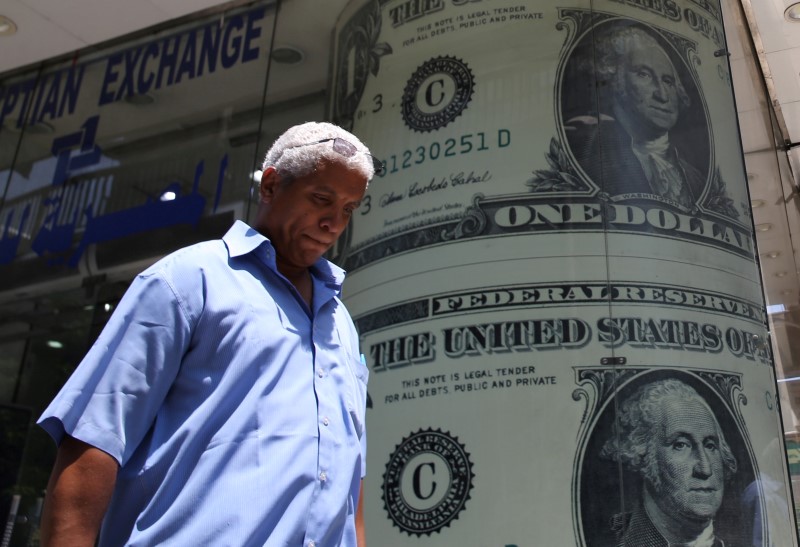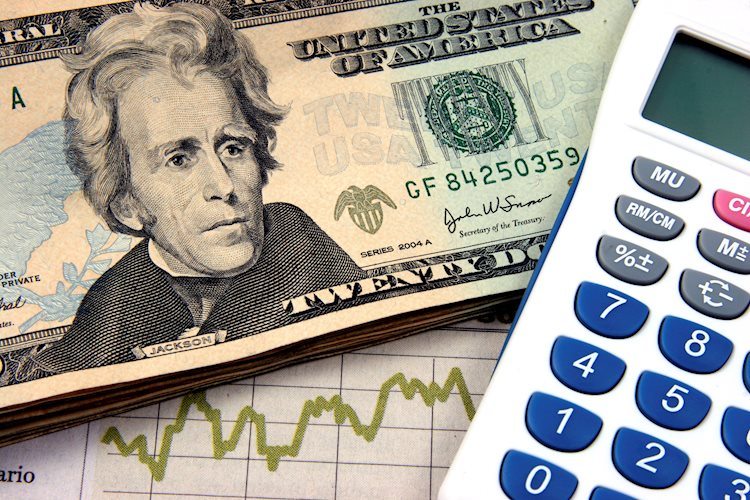Investing.com – The U.S. dollar rose Thursday, benefiting from robust employment data as well as the uncertainty caused by the Middle East turmoil.
At 04:30 ET (08:30 GMT), the Dollar Index, which tracks the greenback against a basket of six other currencies, traded 0.2% higher to 101.597, not far removed from its recent three-week high.
Strong labor market data boosts dollar
The dollar has received a boost from Wednesday’s report showing a larger-than-expected 143,000 increase in U.S. jobs last month.
This followed Tuesday’s stronger-than-expected reading on U.S. , and has raised expectations for a healthy reading on Friday, which could result in an adjustment in the market’s view of the likely pace of Fed easing.
“The pricing for year-end Fed funds continues to largely embed a 50bp cut in either November or December, meaning room for further re-alignment with the Fed’s less dovish rhetoric and consequently upside risks for the dollar,” said analysts at ING, in a note.
“We sense that the bar for a dollar-negative reaction to US data today and tomorrow is probably higher after Fed Chair Jerome Powell’s recent pushback against 50bp reductions.”
The market currently sees around a 37% chance of another 50 basis-point U.S. rate cut on Nov. 7, according to the CME Group’s (NASDAQ:) FedWatch Tool, following the Fed’s outsized reduction last month.
The safe-haven U.S. currency also saw demand as tensions escalated in the Middle East following Iran’s ballistic missile attack on Israel.
Euro weakens on cooling inflation
In Europe, traded 0.1% lower to 1.1035, with the single currency retreating close to a three-week low following further signs of cooling inflation in the eurozone.
Eurozone activity data came in slightly stronger than expected in September, according to data released earlier Thursday, but the data for the region remained in contraction territory.
The normally hawkish European Central Bank policymaker dropped her long-standing warning about the difficulty of taming price growth in a speech on Wednesday, increasing the expectations of another interest rate cut later this month.
GBP/USD slumped 1% to 1.3133, dropping to a two-week low after Bank of England Governor said in an interview that the central bank could become “a bit more activist” on rate cuts if there was further good news on inflation.
Yen falls to six-week low
rose 0.1% to 146.53, with the pair climbing to a six-week high after Japan’s new prime minister said on Wednesday, following a meeting with the central bank governor, expressed caution over the need for additional interest rate hikes.
The of the Bank of Japan’s July meeting, released earlier this week, also showed that policymakers were divided on how quickly the central bank should raise interest rates further.
was largely unchanged at 7.0185, with Chinese markets now closed until Tuesday next week as the country celebrates Golden Week.












